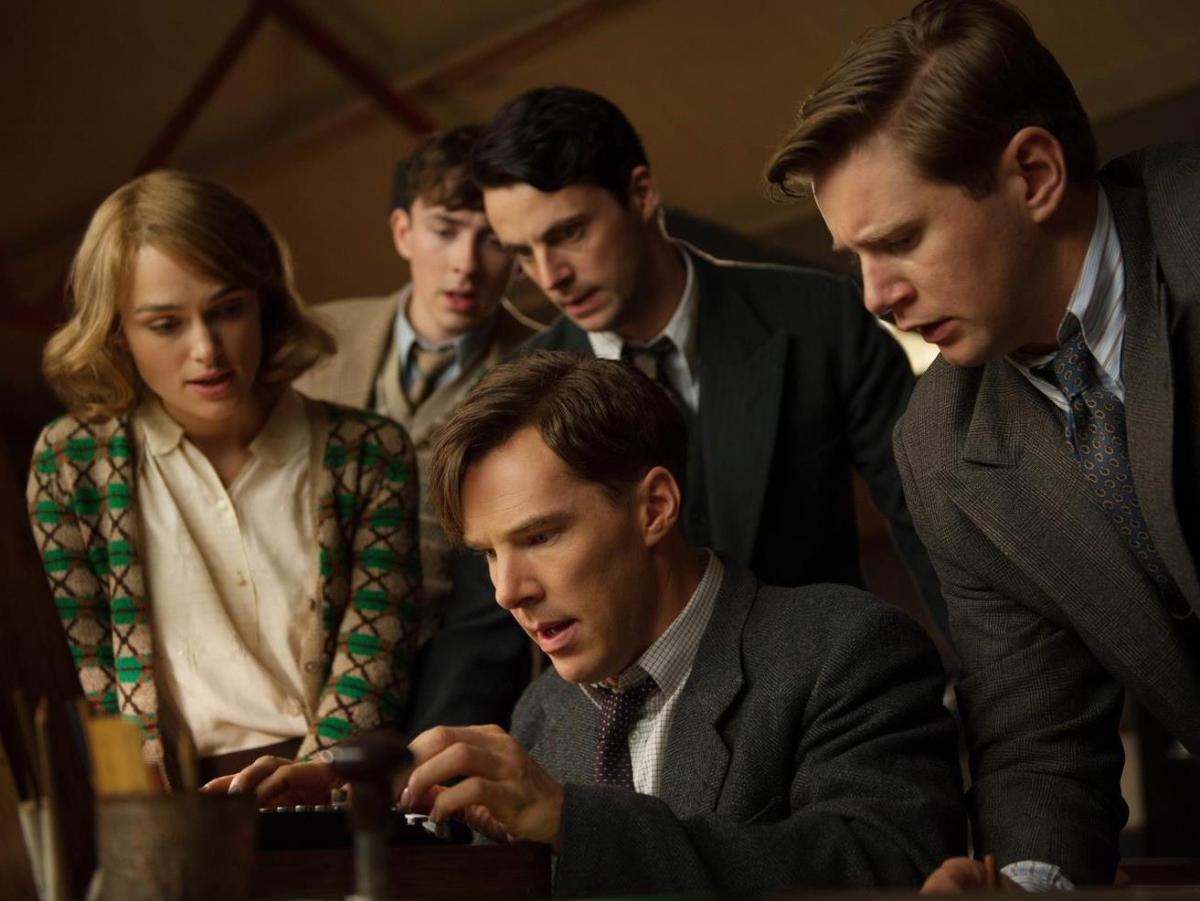The story of Alan Turing is extraordinary. Best known for his cryptology work during the Second World War, the mathematician helped cracked Nazi Germany’s Enigma code. The machine he built, and his contribution to computer science that continued after the conflict, have seen him dubbed the father of the field. That’s the professional side, his legacy now lauded and applauded. Alas, he also suffered horrific injustice in his personal life, his sexual preference punished at the hands of the government, and his life cut much too short at his own hands.
The Imitation Game tells Turing’s tale, conveying all the necessary information with some espionage thrills thrown in for added drama; however the biopic never feels like a complete portrait of such a remarkable man. The stress of his efforts for the British military monopolises attention, simplified as displays of awkward behaviour, arguments with colleagues, failing to meet deadlines, and rare moments of inspiration. Largely absent – partly in fitting with Turing’s private nature, but largely due to the rose-tinted rendering of his exploits the feature favours – is the torment that raged within the man.
Post-war interviews with Turing (Benedict Cumberbatch, August: Osage County) bookend the film’s main storyline, as he recounts his career highlights to an interested police inspector (Rory Kinnear, Cuban Fury) investigating the burglary of his home. Working at the Government Code and Cypher School from 1938 until the end of the war, his task was aided by the assistance of a talented and devoted team – the initially frosty Hugh Alexander (Matthew Goode, Belle), and the lone woman breaking the ranks of expectation, Joan Clarke (Keira Knightley, Begin Again), among them – and overseen by a superior, Commander Denniston (Charles Dance, Dracula Untold), unwilling to indulge his methods.
Adapting Andrew Hodges’ book Alan Turing: The Enigma for the screen, director Morten Tyldum (Headhunters) and writer Graham Moore (short The Waiting Room) wrangle the narrative into conventional confines, furnishing the feature with a socially inept genius, a seemingly insurmountable problem, and the issues that spring – including from the involvement of a MI6 agent (Mark Strong, Before I Go To Sleep), and from the imprint of his schoolboy days, too. As staged with handsome period leanings, lensed with suitably muted colours and plain vantage points by cinematographer Oscar Faura (The Impossible), and scored with sign-posted sentiments by Alexandre Desplat (Godzilla), it is left to the performances to add texture to an altogether old-fashioned account heavy on emotion but light on anything more than cursory details.
In Cumberbatch, thankfully The Imitation Game is gifted a fine central portrayal, and one that remains compelling even within the constraints of the material. His efforts are never more than a step away from his work on television’s Sherlock; however it is a routine, candid, cavalier yet still charming, that the actor does with aplomb. Used as tools to increase narrative tension, Strong also commands attention from the shadows, and Goode perfects the role of the rousing scoundrel. All excel, though none surprise; instead, that is left to the film’s most interesting performance and perspective, in the form of Knightley as the stereotype-battling, code-breaking Clarke. Hers is the character allowed to eschew social standards and defy conservative norms, a refreshing and celebratory inclusion, but demonstrative of treatment that should have also been afforded the film’s protagonist.
Rating: 3 stars out of 5
The Imitation Game
Director: Morten Tyldum
UK / USA, 2014, 114 mins
Release date: 1 January
Distributor: Roadshow
Rated: M
Actors:
Director:
Format:
Country:
Release:





